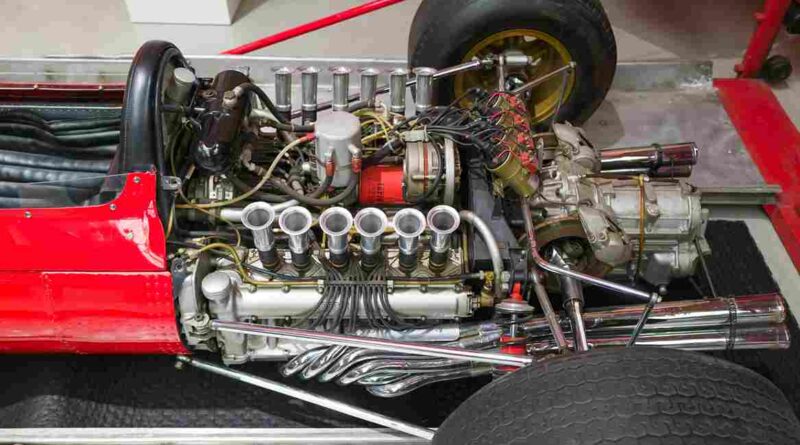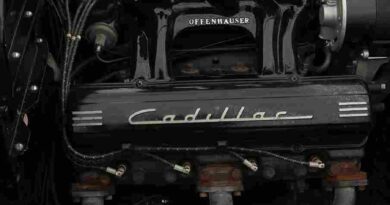v12 Engine
Introduction
V12 engine, with its long tradition, serves as the perfect expression of perfection in car engineering in its form to fit superior performance, luxury, and exquisite craftsmanship. It has been known for quite some decades as the prestigious symbol of luxury and sports cars that come to deliver powerful but smooth drive. Through this, we will be able to know the interesting facts about the V12 engine, working of this car, its pros and cons, and why it sustains a position so highly esteemed in the automotive quarter.
Understanding the V12 Engine
Named the V12, the engine became so with regard to its configuration: 12 cylinders in a two six-cylinder bank configuration in the form of a “V.” Perhaps the best defining characteristic of a V12 engine is the sheer smoothness of the car, and that is why high class cars like Rolls Royce pick up on this engine as well as top shelf performance from cars like Ferrari and Lamborghini.
With more cylinders, the capacity to have smaller displacements in each cylinder yields a higher overall horsepower. Also important to the smooth operating quality of a V12 is its firing sequence: firing every 60 degrees of crankshaft rotation reduces vibrations typical of engines with fewer cylinders, which also helps make an engine silky smooth-thus desirable to luxury, but also to performance.
The Power of the V12 Engine
Probably the most striking advantage of the V12 engine is that it can deliver colossal horsepower. The V12 engine can take use of 12 cylinders working in tandem to convert it to power. Therefore, a V12 engine leads to achieving high amounts of horsepower and torque, which forms its preferred use in extremely high-performance vehicles. For instance, few sports cars, like Ferrari 812 Superfast and the Lamborghini Aventador could be well capable of acquiring the best possible acceleration and the best possible top speed due to its V12 engine. This usually, in most cases, puts them in a better place above some of the other smaller engines that are available, such as V8s and V6s.
The V12 is also very responsive. It gives an immediate response to the throttle and makes the driver feel more in tune with the vehicle. This is partially due to the capability of the higher-revving V12 compared to most other engines with fewer cylinders to produce an expanded powerband. This basically refers to the way through which the engine could provide significant power throughout such a wide range of speed that could make an excellent acceleration vehicle. Whether it be the race track, or a curvaceous mountain road, the V12 engine provides an experience of driving very few can offer.
V12 Engine in Luxury Cars
While sports cars place a heavy emphasis on the V12 engine, the luxury car segment also looks fondly on this power plant. Rolls-Royce, Aston Martin, and Bentley use V12 engines to configure their top-of-the-line models for a silky, effortless drive. In such automobiles, the V12 has been fettled to be refined and not for outright performance because power delivery can be calm and composed. The perfect comfort accelerator for luxury cars is the effortless acceleration of the V12 engine.
The V12’s very striking feature is also that it is really quiet in luxury applications because of its very balanced configuration. In luxury cars like the Rolls-Royce Phantom, it can be so smooth and quiet that passengers are unaware of the power under the hood. Such a balance between power and refinement makes the V12 ideal for luxury cars when the objective is to offer the most comfortable and exciting ride.
Challenges of the V12 Engine

The V12 engine certainly has its downsides. Size and weight are probably the biggest two: a V12 engine is so much larger than a smaller engine it would use up more room in the hood and add weight to the vehicle. This affects the overall balance of the vehicle and may require engineering fixes to provide adequate handling and performance. In addition, the added weight also affected fuel efficiency; thus, V12 engines are not economical compared to smaller engines.
Another disadvantage of the V12 engine is that it is complex. The greater number of cylinders increases the mechanical problems also due to more moving parts. It means more expensive routine servicing and repairs for V12 engines, especially in high-performance or luxury cars requiring precision engineering and specialized parts. For these reasons, V12 engines sometimes have been fitted in cars with a high price, and their ownership cost is also high because of their high production cost as well as ownership cost.
However, the V12 faces extra difficulties in today’s increasingly strict emissions and fuel standards market. Most manufacturers are already withdrawing from the production of V12s and instead begin accepting smaller engines turbocharged to offer the same power. But for the enthusiasts who need a naturally aspirated V12, it has no replacement.
V12 Engine vs. Smaller Engines
The thing with comparing the V12 to a V8 or V6 is it’s a compromise. Smaller engines mean more fuel efficient and they re lighter, typically lots of handling and performance benefits for those applications. Turbo charging helped smaller engines make some pretty impressive power outputs, a reason that a few manufacturers switched over to a turbocharged V8 as opposed to a naturally aspirated V12.
Other than that, there is a kind of driving experience that cannot be approached if the engine is smaller. A V12, in this regard, has smoothness and aesthetics combined with the sound and power delivery, unmatched anywhere else, and has turned into a golden standard for drivers looking for maximum performance and luxury. In addition, the prestige of owning a car with a V12 is the epitome of automotive engineering. This is something that more than one enthusiast looks for.
The Future of the V12 Engine
With advances in automobile technology, it cannot be said when and whether it will take over the V12 engine or not. There are people who are putting a lot of investment into electric and hybrid power train technology in order to reduce emission and fuel consumption. And the companies have even tried their luck with hybrid V12 engines where an electric motor is integrated with an internal combustion engine for better performance and at the same time revealing low environmental damage.
But in this pantheon of performance and luxury, it seems room for the V12 exists. Provided enthusiasts and collectors appreciate the special ingredient of a V12, manufacturers are going to continue building them in limited runs. It may well become the extreme rarity, but the V12 will remain forever the icon for power, prestige, and engineering excellence.
Conclusion
Conclusion- In short, the V12 is perhaps one of the most coveted and worshipped power trains in history. At the same time, for smooth, powerful performance, it has made this one of favourites among luxury car manufacturers and sports car enthusiasts. Besides fuel efficiency, its disadvantages include size and weight, but the V12 is still a proud example of what internal combustion engineering can say by the way of work. As the car industry moves forward toward more green technologies, the V12 will become even rarer, but its legacy will always be in the hearts of those who would be fascinated by the odd marriage of power and refinement it embodies. Whether in some high-performance super car or luxury sedan, V12 will always represent the absolute pinnacle of automotive engineering.





wow chin tappk dam dam
nice article keep it up
Pingback: Lamborghini Sian - AUTOENTHUSE